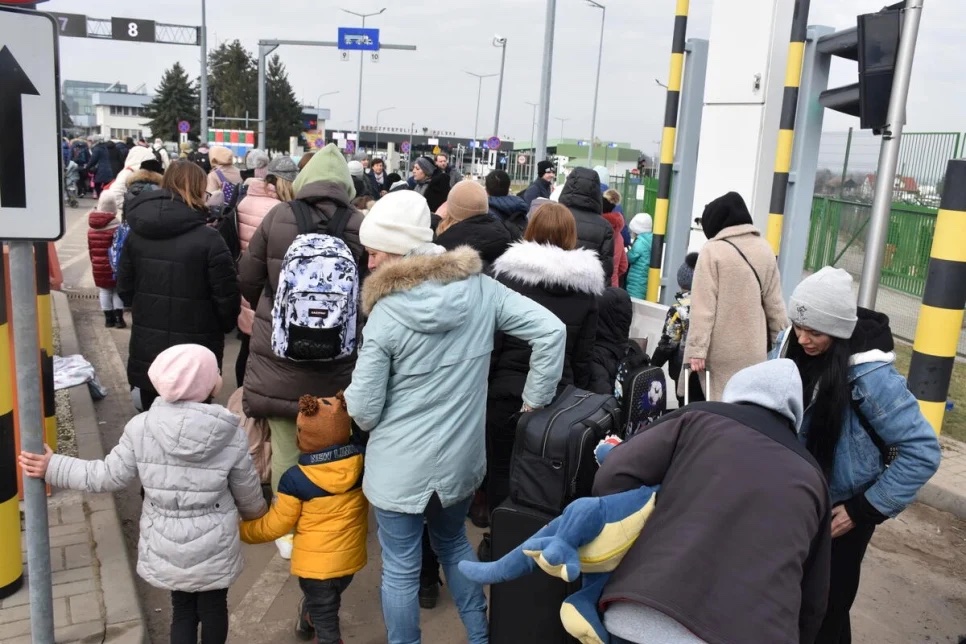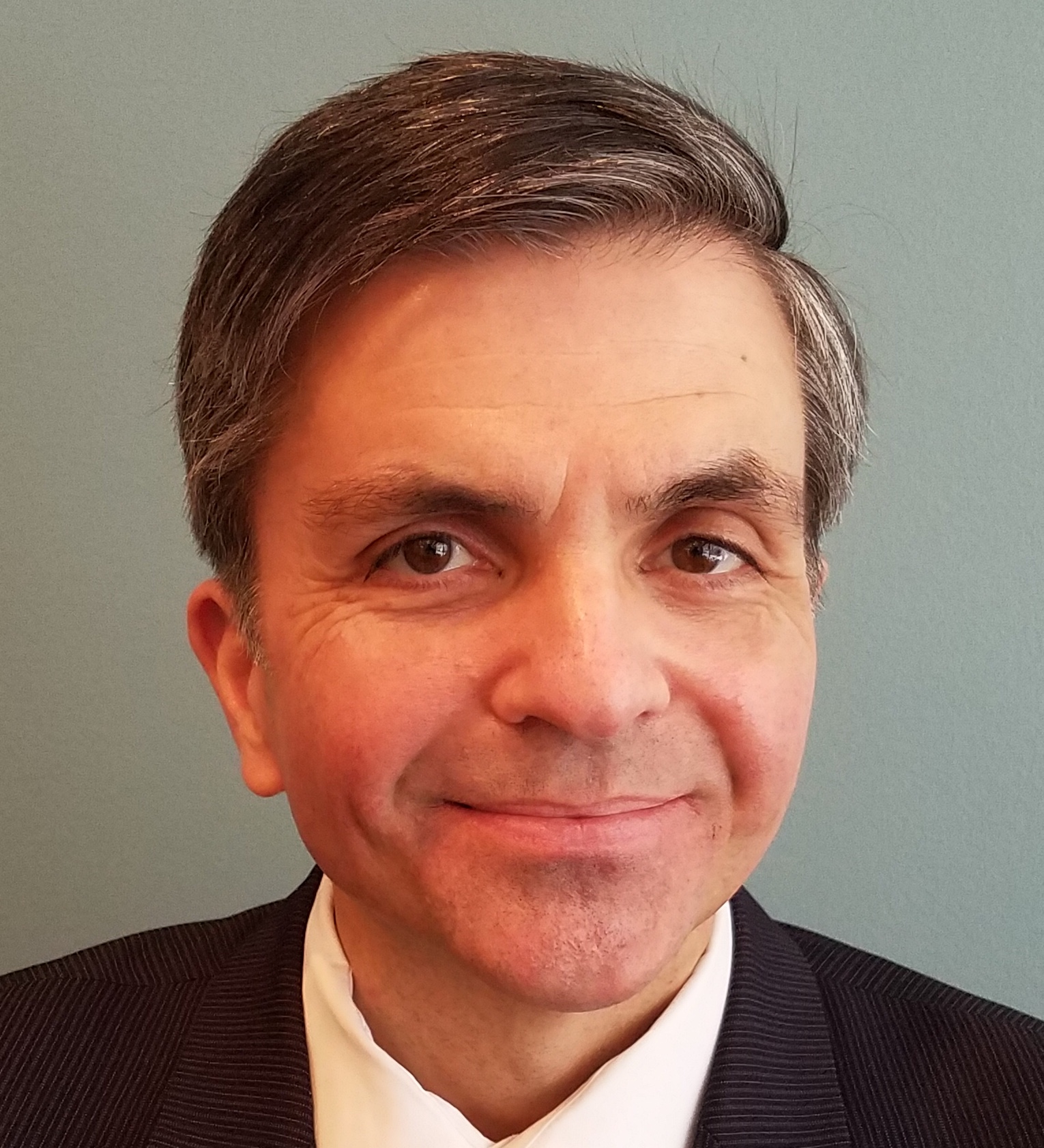Here’s my interview with Jaroslaw Lukasik of the Eastern European Leadership Forum about helping churches in Ukraine and refugees from Ukraine. Currently based in Lublin, Poland, a main center for escaping Ukrainians, he planted and pastored a Pentecostal church in Minsk, Belorussia, across 14 years until his 2007 deportation. From 2008 onward for many years he conducted ministry in Kiev, Ukraine. You can support his ministry here.
Download podcast audio here:
Transcript by Collin Bastian:
Mark Tooley: Hello, this is Mark Tooley, President of the Institute on Religion and Democracy in Washington, D.C. and editor of Providence: A Journal of Christianity and American Foreign Policy with the pleasure today of speaking with a new friend in Poland, very much involved with the Ukraine situation. He is, and let me pronounce his name carefully, Jaroslaw Lukasik. He is Polish, a Pentecostal preacher who founded a church in Minsk, Belarus. Later started a ministry in Kiev, Ukraine. He is the founder, and I assume, still the CEO of the Eastern European Leadership Forum. And he is currently very involved in getting relief to people in Ukraine during this wartime situation. So, Jaroslaw, thank you so much for joining this conversation and tell us what you are doing, currently to get relief to Ukrainians.
Jaroslaw Lukasik: Thank you for the invitation I’m very glad to be with you. Yes, so I worked in Ukraine for 14 years. In Ukraine with my family there, so our ministry is focused on preparing Christians for public sphere, so we do various projects like Eastern European Leadership Forum, or some media projects like (?) for Ukraine, or the Christian Open Academy we started just one year ago and now, when this started, we founded the Christian Open Academy with the aim of preparing Christians for the public sphere, so when this started, the war, we created a network between Ukrainian churches, Polish churches, churches from Western Europe, for how we can help Ukraine in this crisis time, in this disaster that is happening right now.
Mark Tooley: And so, you are obviously in regular contact with friends and associates in Ukraine directly confronted by the war by phone and by email. What are they telling you?
Jaroslaw Lukasik: Yeah, sure so in the Ukraine, the Internet works, and even in very hot places where there are battles right now, Internet works, so we are in contact: phones, everything works. And we work in two directions, so one direction is from east to west, so we work with refugees, we work with people who work with every equation of people from dangerous places. And with refugees, so we have a lot of refugees, right now, especially in Poland. Just the day before yesterday we had a Polish border crossing of almost 120,000 refugees. Could you imagine? So, it’s a lot of people here and so it’s one type of work. And the other one is from the west to east it’s gathering some help, so we receive tracks or buy things here in Poland and pack in tracks and send them to Ukraine, so there is some system. These tracks come to Western Ukraine and from hubs that are created now, they’re in the western Ukrainian cities. They are distributed to places where there is a big need, because people need medicine, food, some stuff, some essential items, so even I read today in the newspaper, a Polish newspaper, that some people are going hungry, so there are some places where people do not have food.
Mark Tooley: And, Ukraine has more Protestants and Evangelicals than any of the former Soviet republics and perhaps more than Russia itself, is that true?
Jaroslaw Lukasik: Yes, absolutely, we can say that 75 percent of Evangelical believers in Soviet time were in the Ukraine, and even the churches in Russia today were formed mostly by Ukrainian missionaries, and among church leadership in Russia today, many of them are Ukrainians. So, in Ukraine, there was a big revival in the beginning of the 20th century, especially in the western or southern Ukraine, so we say sometimes that Ukraine is a country of missionaries.
Mark Tooley: And the churches with whom you have contact in Kiev and elsewhere, are they managing together for worship during these times?
Jaroslaw Lukasik: Yes, yes, so churches continue to meet and even, we can say that I received a lot of testimonies that non-believers come to such meetings, people really need God now, especially in Kiev. Kiev is under siege, it is surrounded, from northern, western, and eastern side, surrounded by Russian troops, so its buildings are being bombed, so it’s quite a dangerous time and people are really called to God and it’s doing great spiritual work among them.
Mark Tooley: And we often hear that, despite the official Christianity of the Russian regime and the role of the Russian Orthodox Church that the rate of actual religious participation in Russia is very, very low. I think regular church attendance is well under 10%. What is religious active attendance in Ukraine like, do you have any idea?
Jaroslaw Lukasik: Yeah, so I think it’s a big difference between Russia and Ukraine in this spiritual way, so I don’t want to be subjective, like it’s war, so I need to say something bad about Russia, something good about Ukraine. So, in Ukraine there is a lot of spiritual problems and sin, etc., but anyway, I think the spiritual atmosphere in Ukraine is very different than in Russia. So first, the Russian Orthodox Church is not a free church, I think it’s some type of part of government, it’s a ministry, I mean like one of the branches of government and it’s in the Russian tradition, so we know that even in times, so, Byzantium, or, especially after in time of Mongol Tatars, when they governed the Russia, and after during tzars, the church was under the tzar, And therefore the church controlled people as dictatorship. There are some evangelical churches, but many of them are also influenced by propaganda, and it’s very painful for us hearing from our brothers in Christ some horrible things, that they don’t believe that there’s a war in Ukraine, they say it’s fake news what we see from your video that you sent us, and so propaganda is huge, and Christians sometimes don’t know how to deal with such propaganda.
Mark Tooley: Now, in Ukraine, obviously, historically Eastern Orthodoxy was the majority religion, followed by Catholicism and then Evangelicals and Protestants. I assume there’s been a great sense of fraternity and unity among Christians across communions in this wartime situation?
Jaroslaw Lukasik: Yes, yes in the wartime situation, but I think this time, the churches have been preparing during the past two decades, I think, for this situation. I remember in 2002, David Wilkerson came to Kiev and on stadium he had a sermon, and during the sermon he said I’ve never seen such a divided church like in Ukraine. So, at that time, the church in Ukraine was very divided, and it had so many conflicts. But in 2017 in Ukraine, 30 Protestant denominations united together for a great anniversary of the Reformation, and it was great cooperation, even in villages and small towns, it was steering committees. And people from different denominations made a lot of projects for giving testimony to society, and also Ukraine works with the Council of Churches and Christian organizations, and they meet every week so it’s very good that really, we can say the church is united. And today also, we work in our network, we work with Protestants, Catholics Orthodox people, so we work together, because only in this synergy, can we solve the horrible problems that Ukraine faces right now so only doing a good chain of, for example, this distribution of food, of medicine, etc., can we be successful in this time.
Mark Tooley: And presumably many members of the churches you have relationships with are serving in the Ukrainian armed forces right now.
Jaroslaw Lukasik: Yeah, yes, so many people serve and in the Ukrainian forces, many people serve in the voluntary Territory Defense, a type of military troop, and also there is a chaplain ministry development, so there are several chaplain associations, so yeah people understand that all these things that we like, like pacifism, or all those things, so in this day theology is changing radically.
Mark Tooley: And then, finally, you are today in Lublin, Poland, is there a great sense of support and solidarity in Poland for the people of Ukraine?
Jaroslaw Lukasik: Yeah, so Lublin is a very specific, strategic city for help for Ukraine, because it’s the biggest city in eastern Poland and the nearest big city to Ukrainian border, so refugees, Ukrainian refugees, mostly go through Lublin. And the same aid from the West also generally is going through the same city, so even in 2015 I had such a vision to create some center in Lublin for help for Ukraine. So, now it is this time when, namely in this city, generally in Poland, and then in other countries, everywhere is gathering help for Ukraine and people accept refugees but I think that Lublin has a really very strategic role in this, and this network that has been created here, and many people, even the people that I don’t know them, they come to us and want to meet here, and to end because they see a map and they see Lublin as a place where is near to the border so we created the hub here and there is a console of pastors and other activists that meet together, and they coordinate their work, having good contact with Ukrainian churches with such coordinators in the various Ukrainian regions.
Mark Tooley: Jaroslaw Lukasik, thank you so much for a very informative conversation, and God bless your labors as you strive to help the suffering people of Ukraine.
Jaroslaw Lukasik: Thank you very much, Mark, thank you very much, American people, for your compassion, for your love, and for your support, every support in political way, diplomatic way, in every material aid that you give us for Ukraine in this not easy time. Thank you very much.






Comment by Donald on March 13, 2022 at 6:38 am
Thanks for sharing this vital information.